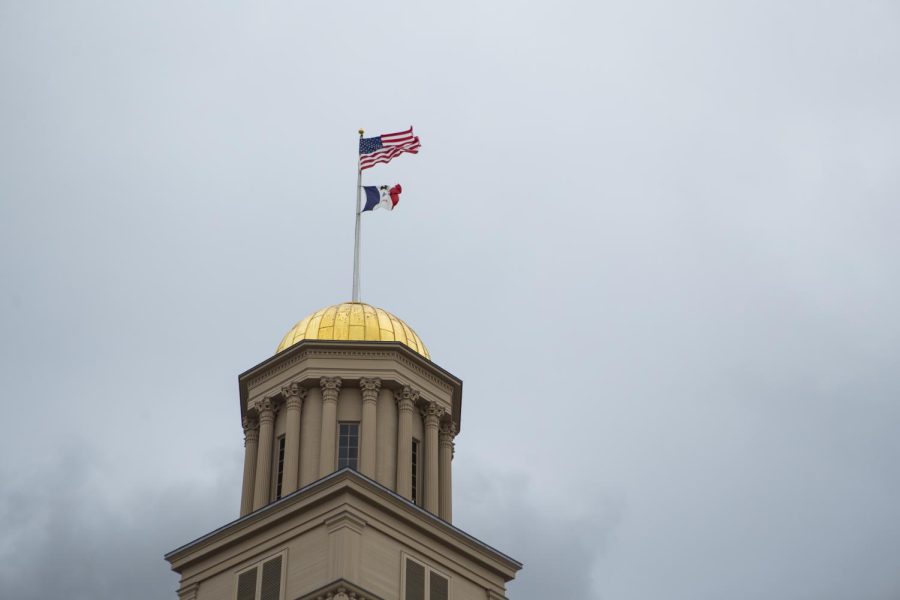As University of Iowa students prepared to celebrate Valentine’s Day the morning of Feb. 14, Iowa Edge peer leaders discovered an email in their inboxes announcing the last-minute cancellation of the Iowa Edge Peer Leader Training courses.
These two courses, CIAE:2013, Iowa Edge New Peer Leader Training, and CIAE:2033, Iowa Edge Returning Peer Leader Training, were scheduled to begin Feb. 18 and Feb. 20, respectively, but are no longer being taught.
This leaves peer leaders unsure how the program will look this upcoming year, especially since the program was already shortened in the past year, and staff from the program have been fired due to new legislature which prohibits funding for DEI offices or positions.
Iowa Edge typically begins in the summer a week prior to the start of classes as an orientation program for incoming college students. While the program is open to everyone, it is usually catered toward students from historically marginalized communities, such as first-generation students, students from low-income households, students of color, and queer students.
As the semester progresses, Edge participants also have opportunities to meet with mentors to discuss their time at the UI and participate in events with one another.
However, months before the program is set to begin, new and returning peer leaders are trained on how to mentor students joining Iowa Edge in the upcoming fall semester through the two peer leader training courses.
“Essentially, what they’re teaching us is how to be mentors to these incoming students and how to navigate conflict because we do mentor multiple people at a time,” Fenix Lara, a returning peer leader, said. “It is teaching us how to navigate those relationships, how to be mentors, and how to give [incoming students] the best access to the different resources that are available to them.”
While voluntary training is being offered as a replacement for the peer leader training courses, Elizabeth Edwards, an associate peer leader with Iowa Edge, believes this isn’t enough.
Edwards said making the course voluntary creates an issue for students who may have relied on the credit provided by the course to be eligible for scholarships or to maintain full-time student status. The voluntary training also creates scheduling issues for the peer leaders who may not be able to attend training now that there’s no longer a mandatory, set schedule.
“We can’t guarantee that everyone will have equal access to go to these trainings, and we’re running out of time,” Edwards said. “It seems to have been very last-minute, all of these decisions.”
Edwards said taking away these courses makes forming a community within the program challenging, especially for new peer leaders.
RELATED: Eight UI diversity councils no longer recognized as of Monday
“Everybody is able to get to know each other,” Edwards said. “The program works because it’s like a family. Especially first-year peer leaders, they’re not going to be able to get to know us on that same level or really feel prepared going into the program.”
DW Beltz is one of the new peer leaders at Iowa Edge. Beltz, a first-year student at the UI who participated in Iowa Edge as a mentee in the fall 2024 semester, discovered the email asking him to drop the Iowa Edge New Leader Training course as he was eating breakfast and was shocked by the sudden cancellation.
“I knew something in the department was changing, but I didn’t know [to what extent]. I didn’t expect it to be this major,” Beltz said. “I was saddened a bit, I mean, it was a class I was kind of looking forward to.”
For Beltz, Edge was important because it allowed him to form personal connections with students, faculty, and staff during his first semester at the UI.
“It was a good way to build friendships and start making connections on campus, whether that be students or faculty in the Office of Access and Support,” Beltz said.
While Iowa Edge is still scheduled to occur in the summer of 2025, there is confusion among peer leaders as to what the program will look like.
Cassandra Gordon-Fletcher, who oversees Iowa Edge as the senior director of the Office of Access and Support, met with returning peer leaders to discuss the changes being made to the program, but as Edwards said, left leaders with more questions than answers. And even further, to the students’ frustration, she said the changes to the program are things students and staff must simply accept.
But students within the program disagree and believe there’s more the university could be doing to protect and support its students.
“I think it’s really disappointing to see how quickly the university is willing to bend to different things that are happening, especially when it comes to programs or really anything that is here to support and benefit their marginalized students,” Lara said. “I wish I saw more support from the university because this isn’t the first time, and I don’t think it’s going to be the last.”



